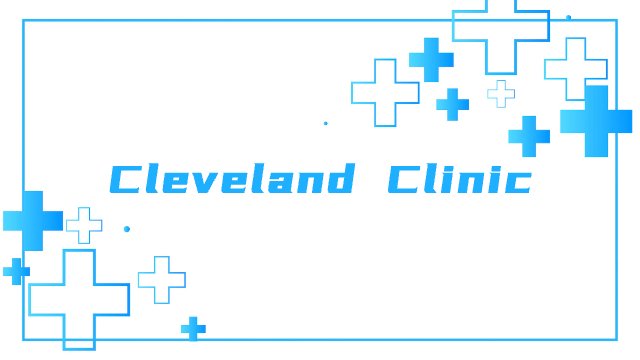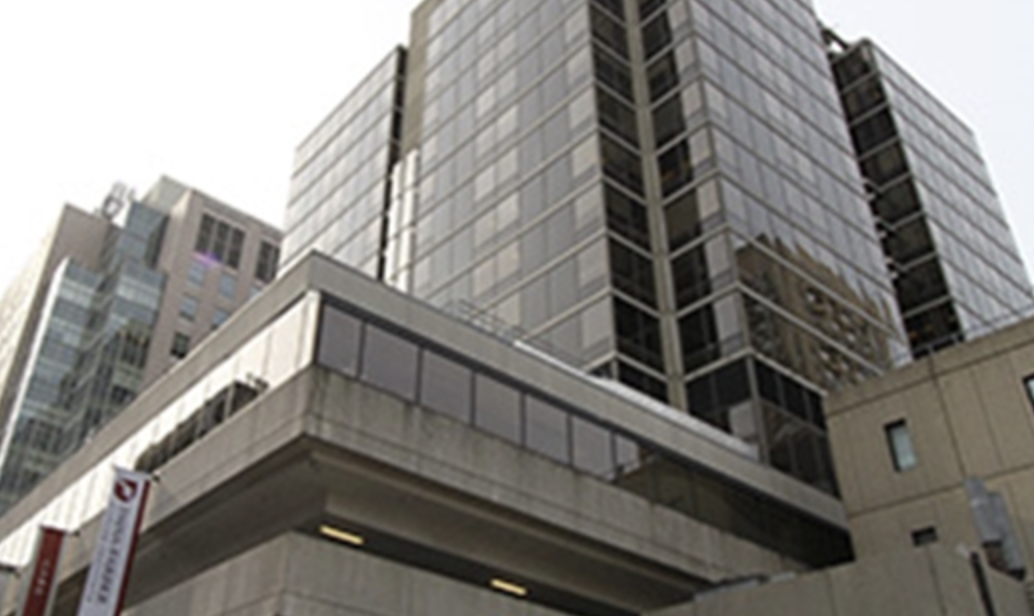Hospital
Tokyo Medical And Dental University Medical Faculty Hospital
Tokyo Medical and Dental University, located in Yushima, one of Japan's holy places of learning and education, is the only comprehensive medical university in Japan. The university offers only two undergraduate departments, one in dentistry and the other in medicine. In the QS World University Rankings, Tokyo Medical and Dental University is ranked among the top 10 in the world and the top three in Japan for its top specialty, dentistry, making it one of Japan's leading medical meccas.

About Tokyo Medical and Dental University Medical Faculty Hospital

Tokyo Medical and Dental University, located in Yushima, one of Japan's holy places of learning and education, is the only comprehensive university in Japan with a medical faculty. The university offers only two undergraduate departments, one in dentistry and the other in medicine. In the QS World University Rankings, Tokyo Medical and Dental University is ranked as one of the top ten medical schools in Japan and one of the top three medical schools in the world.

Tokyo Medical and Dental University has two faculties, both of which have their own hospitals - the "Medical" Faculty Hospital and the "Dental" Faculty Hospital.
Both hospitals have one of the highest numbers of first-time patients among national university hospitals in Japan. They have also been ranked first in Japan in terms of the number of doctors who wish to receive training at these two hospitals. The hospitals are highly sought after by both patients and doctors.

Tokyo Medical and Dental University Faculty of Medicine Hospital
The Faculty of Medicine Hospital has 41 departments and 28 central medical facilities, and receives approximately 580,000 outpatients each year as a special function hospital. The hospital's philosophy is "to provide high quality advanced medical treatment in a safe and consistent manner" and each department is dedicated to developing and practising advanced medical treatment.
Specialties of Tokyo Medical and Dental University Medical School Hospital
1,Orthopaedic Surgery (Orthopaedics)
The Department of Orthopaedic Surgery at Tokyo Medical and Dental University Hospital is the head of the Ministry of Health, Labour and Welfare's Clinical Research Group for Difficult Diseases in the field of spinal ligament ossification, and is leading clinical research on a national scale as the core team. In addition, in the knee joint, the hospital was the first in the world to start transplantation of synovial-derived mesenchymal stem cells (SDSCs), revolutionising the treatment system for cartilage defects and meniscal injuries.
The hospital has also treated professional and Olympic athletes for lower limb trauma including knee ligament injuries, shoulder tendon ruptures, severe trauma including pelvic trauma, and bone and soft tissue tumours including cancerous metastases.

The hospital performs around 300 spinal surgeries per year and is located at the head of the Nihon University Hospital. Through spinal cord function monitoring, there has not been a single case of severe paralysis caused by cervical or thoracic spine surgery. The hospital performs about 250 knee arthroscopic surgeries per year and actively introduces a variety of less invasive treatments.
The Tokyo Medical and Dental University spine team has one of the highest numbers of spinal surgery cases in Japan (over 3,000 cases a year for the entire team).
2,Hepatobiliary and pancreatic surgery
Tumours in the hepatobiliary and pancreatic areas are difficult to diagnose and are also very difficult to operate on. The Department of Hepatobiliary and Pancreatic Surgery at Tokyo Medical and Dental University Hospital performs approximately 250 surgeries a year, and in 2018 performed 78 liver resections (36 laparoscopically) and 75 pancreatic resections (2 laparoscopically), which is one of the few in Japan.
The hospital opened the first pancreatic neuroendocrine tumor specialist clinic in Japan and received 397 patients from all over Japan, growing into a leading High Volume Center in Japan.
3,Colorectal and Anal Surgery
The Department of Colorectal and Anal Surgery at Tokyo Medical and Dental University Hospital performs approximately 380 colorectal cancer surgeries each year, and works hand in hand with the Department of Gastroenterology and the Department of Gastrointestinal Chemotherapy Surgery to take care of the entire process of colorectal cancer treatment, from preoperative diagnosis, endoscopic treatment, surgery to chemotherapy.
The hospital has some of the best colorectal surgeons in Japan and has performed many robotic surgeries. The head of the department, Yusuke Kinugasa, has been appointed by Intuitive Surgical, a leading manufacturer of the da Vinci robot, as the first robotic rectal cancer surgeon in Japan, and has been providing training in robotic surgery to surgeons, university hospitals and central hospitals in Japan and abroad, in addition to obtaining more treatment cases in Japan.
4,lcerative Colitis and Crohn's Disease Medical Center
Ulcerative colitis and Crohn's disease are both intestinal disorders of unknown origin and have been difficult to treat until now, but recent research has led to the development of most effective treatments.

Dr. Masakazu Nagahori, Head of the Advanced Medical Centre for Ulcerative Colitis and Crohn's Disease at Tokyo Medical and Dental University Hospital, explains that the Advanced Medical Centre, which treats 2,800 patients with inflammatory bowel disease, has been improving its specialist care under the motto "treating patients after correctly determining their intestinal conditions". Medical services
5,Head and Neck Surgery
The Tokyo Medical and Dental University has the only head and neck surgery teaching at a national university in Japan, and the Medical Faculty Hospital is a leader in head and neck cancer treatment in Japan, treating all tumours in head and neck surgery, mainly ear, nose and throat malignancies.
The hospital introduces chemotherapy and laryngeal preservation surgery to treat laryngeal cancer, preserving articulation and swallowing as much as possible, not only to eradicate the cancer but also to try to ensure the patient's quality of life after treatment.
6,Formative Surgery (Plastic and Reconstructive Surgery)
The Department of Reconstructive Surgery performs a wide range of surgical procedures, including the following: facial fractures, congenital malformations, melanoma and other malignant tumours of the skin and soft tissues, skin ulcers caused by bedsores and diabetic ulcers, tissue reconstruction, breast reconstruction after breast cancer surgery, and various cosmetic surgery procedures.
7,Ophthalmology
Japan is a world leader in the treatment and research of "high myopia" and "pathological myopia", which is uncorrectable and may lead to blindness.

The team at Tokyo Medical and Dental University Medical School, headed by Dr Kyoko Ono, is a leading voice in Japan and abroad in terms of the causes of pathological myopia and the publication of new medical techniques and research. The Hospital's Pathological Eye Clinic, which is at the forefront of ophthalmology treatment, receives many patients from home and abroad.
The hospital's world-leading clinical specialities in ophthalmology include.
Quality medical care for eye diseases that cause blindness, from diabetic retinopathy, retinal detachment, glaucoma to cataracts.
Collecting a wide range of cases from patients all over Japan, we have an absolute advantage in treating high myopia, refractory uveitis and macular degeneration.
Most of our surgeons are highly skilled in retinal vitreous surgery, glaucoma surgery and other difficult eye surgeries.
We also have extensive experience in ocular neurology, eyelid and tear duct surgery, which are rarely available in other medical facilities.
8,Urology
The Department of Urology at Tokyo Medical and Dental University Hospital not only provides world-class treatment services, but also develops and practices new therapies that can contribute to patients and society, and popularizes and promotes them in Japan and overseas.
For all urological and renal cancers, the hospital has developed and uses minimally invasive endoscopic surgery (no CO2 gas, single-port, using a 3D head-mounted display). The use of da Vinci robotic-supported surgery for prostate cancer is scheduled to be expanded for surgical indications. For pelvic organ prolapse and urinary incontinence, cutting-edge treatment techniques are used, namely laparoscopic vaginal sacral fixation and artificial urethral sphincter placement.
-
![]()
![]() HospitalFeb 21, 2026
HospitalFeb 21, 2026Boston Children's Hospital
-
![]()
![]() HospitalFeb 20, 2026
HospitalFeb 20, 2026Keio University Hospital
-
![]()
![]() HospitalFeb 19, 2026
HospitalFeb 19, 2026Heidelberg University Hospital
-
![]()
![]() HospitalFeb 18, 2026
HospitalFeb 18, 2026Cleveland Clinic - Top 10 Best Hospitals in the World
-
![]()
![]() HospitalFeb 17, 2026
HospitalFeb 17, 2026Dana-Farber Cancer Research, Teaching Affiliate, Harvard Medical School




